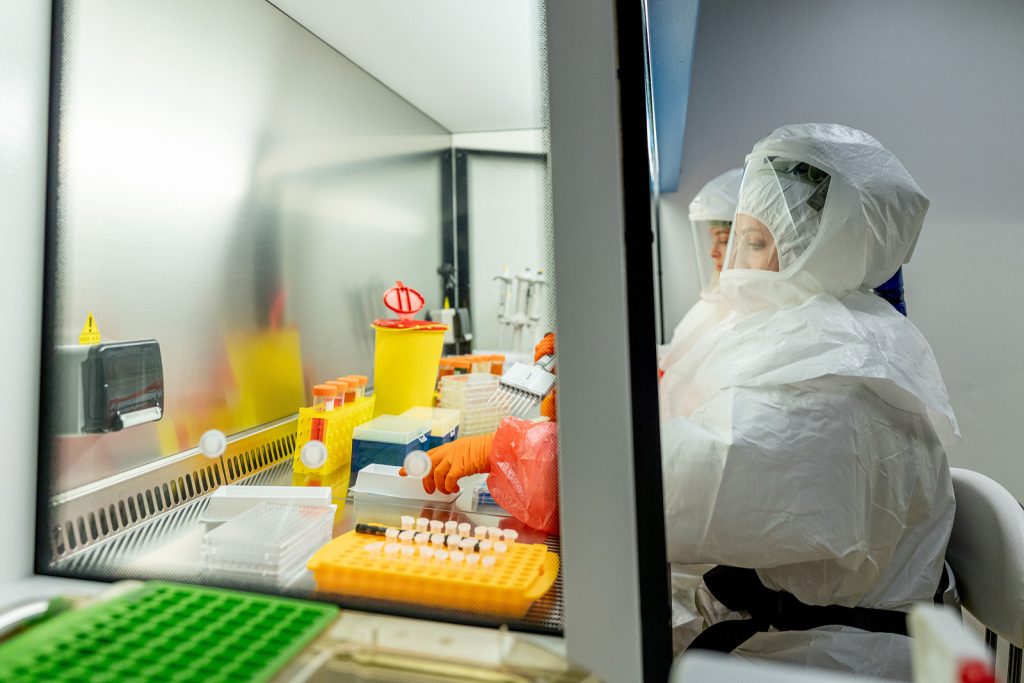New BSL-3 Laboratory for Work with Small Laboratory Rodents at the Czech Centre for Phenogenomics in Vestec
The new state-of-the-art BSL-3 laboratory for work with highly infectious viruses and bacteria in the Czech Republic was opened on 9 March at the Czech Centre for Phenogenomics (Institute of Molecular Genetics of the Czech Academy of Sciences in the BIOCEV centre). When it is fully operational, it will raise the level of Czech research in the field of infectious diseases and treatment proposals for patients not only in the Czech Republic.
“Although there are many laboratories in the Czech Republic where infectious diseases can be studied in cells, there is currently only a very limited possibility to study infections and their treatment in vivo using animal models in the so-called biosafety level 3 (BSL-3) regime,” explains Radislav Sedláček, head of the Czech Centre for Phenogenomics, and adds: “BSL-3 laboratories are used to study infectious agents or toxins that can be airborne and cause potentially fatal infections. In addition to SARS-CoV-2, yellow fever virus, West Nile virus, Venezuelan equine encephalitis virus, eastern equine encephalitis virus and MERS-CoV fall into this category.“
The new laboratory will be used primarily for preclinical testing of new drugs in animal models with sufficient capacity.
The services of the laboratory can be used by scientists from the Czech Republic and abroad within the framework of open access to a large research infrastructure.
The modern design makes the research facility one of the leading facilities of its kind in the world. In terms of the technical security of the laboratory, a modern air handling system and control system with supply and exhaust air filtration was installed, as well as a chemical decontamination station for wastewater. The new technology meets the highest requirements for operational safety in accordance with Czech legislation and international recommendations.
